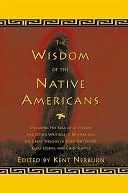More on this book
Community
Kindle Notes & Highlights
by
Kent Nerburn
Started reading
July 9, 2019
western Europeans who came to these shores had a contrary belief. To them, the entire American continent was a beautiful but savage land that it was not only their right but their duty to tame and use as they saw fit.
Traditionally, Indians did not carry on dialogues when discussing important matters. Rather, each person listened attentively until his or her turn came to speak, and then he or she rose and spoke without interruption about the heart of the matter under consideration. This tradition produced a measured eloquence of speech and thought that is almost unmatched for its clarity and simplicity.
Our young people, raised under the old rules of courtesy, never indulged in the present habit of talking incessantly and all at the same time. To do so would have been not only impolite, but foolish; for poise, so much admired as a social grace, could not be accompanied by restlessness. Pauses were acknowledged gracefully and did not cause lack of ease or embarrassment.
We send our little Indian boys and girls to school, and when they come back talking English, they come back swearing. There is no swear word in the Indian languages, and I haven't yet learned to swear. — Gertrude S. Bonnin (Zitkala-Sa) Yankton Sioux


